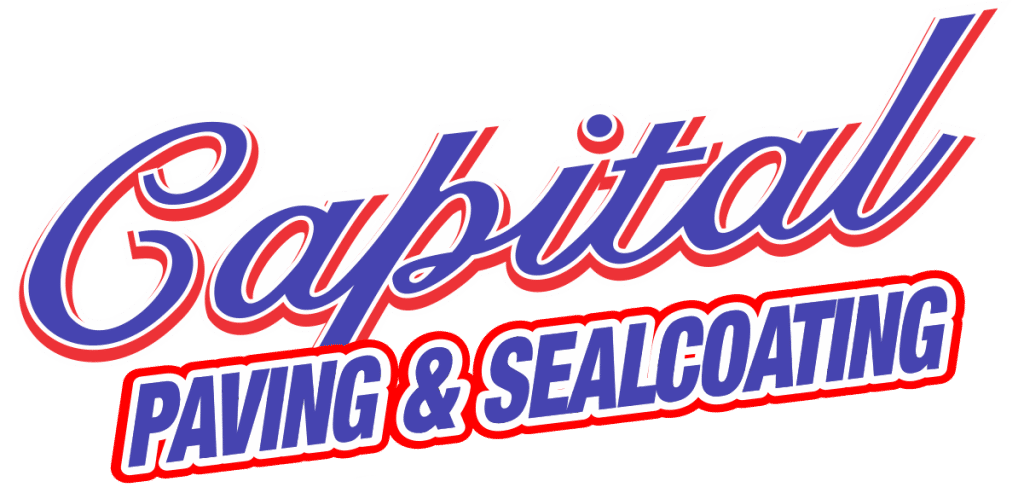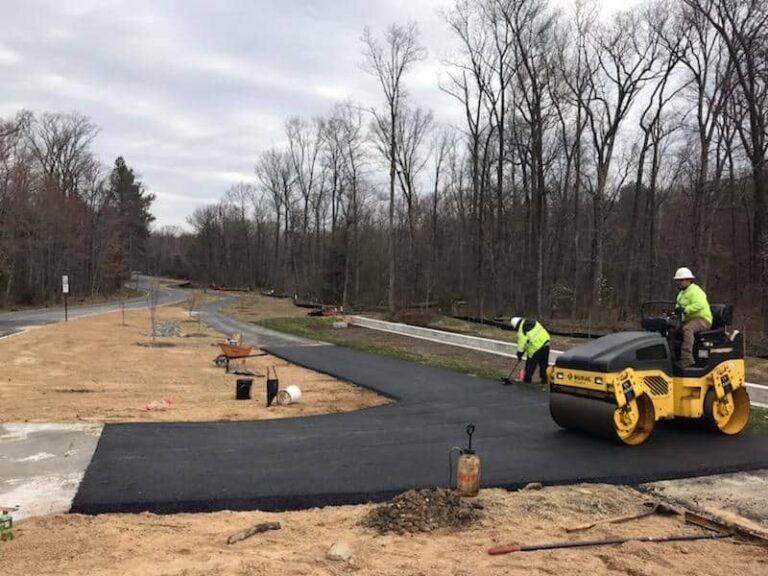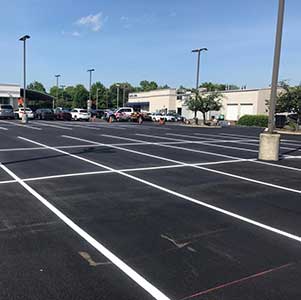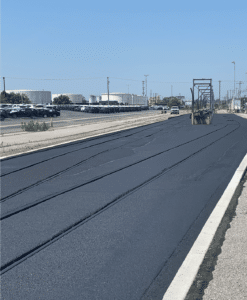Have you ever wondered what materials are used to pave roads? Most major highways are paved using either asphalt or concrete. Capital Paving & Sealcoating has worked with both types of materials for commercial and residential paving projects. We can help you decide which material is best for your driveway or business.
Difference between Asphalt vs Concrete:
- Asphalt: Asphalt, also known as bitumen, is a sticky, black, and highly viscous liquid or semi-solid form of petroleum. It is mixed with aggregates such as sand, gravel, or crushed stone to create asphalt concrete, commonly referred to as asphalt pavement.
- Concrete: Concrete combines cement, water, and aggregates such as sand, gravel, or crushed stone. When these ingredients are mixed, they form a hard and durable material.
Paving with Concrete
Repairing and fixing issues with concrete is not easy either. If an area needs repair, the entire area has to be dug up and then repoured. This is labor-intensive and time-consuming for all parties involved.
Paving with concrete involves laying and finishing concrete to create a durable and functional surface for driveways, sidewalks, patios, and other outdoor areas.
Paving with Asphalt
Asphalt is used to pave major interstates, main roads, parking lots, driveways, and more. A roadbed is prepared, and the aggregates are mixed in a large drum with the hot bitumen until it is ready to be poured onto the more substantial aggregate already in the roadbed. After this, a steamroller machine is used to compress everything together. When the asphalt is cooled to the surrounding air temperature, it is ready to withstand automobile traffic. Asphalt cures much faster than concrete, and it can take days to handle any traffic.
Benefits of Paving with Asphalt
However, there are additional benefits to paving with asphalt besides how quickly it cures.
Capital Paving & Sealcoating recommends asphalt for most projects because of its durability, flexibility, longevity, and ease of repair and maintenance. These same reasons are why asphalt pavement is so widely used throughout the U.S.
Asphalt pavement is durable and can handle massive traffic and heavy loads, but it is not as rigid as concrete and can flex. This ability to flex keeps the pavement from cracking.
If your asphalt does crack, it is easy to repair, unlike its counterpart, concrete. Cracks can be fixed in various ways, from sealing the crack to patching a hole.
With proper maintenance from sealcoating, your pavement can last upwards of 20-25 years before needing to be replaced entirely. If the top layer of asphalt begins to look shabby, you can extend its lifespan by resurfacing it while keeping the bottom layers in tack. Think of this as giving your asphalt pavement a facelift! Resurfacing your asphalt is highly cost-effective.
Finally, did you know that asphalt is 100% recyclable? It is the most recycled product in the United States! There are always roads that need repair, so the need for asphalt materials is in high demand. That is why you will rarely find any of it in landfills. The aggregate can be crushed and mixed with fresh bitumen over and over; in fact, the recycled product is stronger than virgin asphalt.
Asphalt is the most common paving material used, and we recommend it to our clients the most. While there may be instances where concrete may be a better solution, most of our clients choose asphalt for several reasons. If you need help determining the best paving solution for your needs, don’t hesitate to contact us today for a free estimate!







